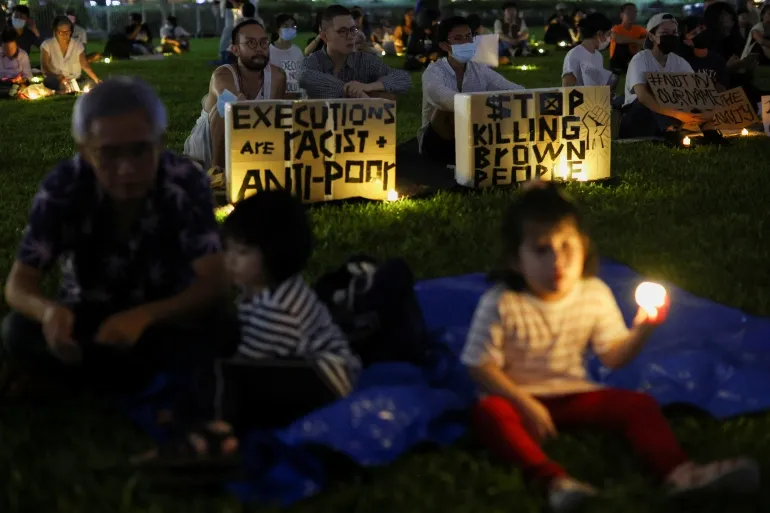Singapore Tightens Rules on Death Row Inmates Filing Last Minute Appeals
On Tuesday, Singapore's Parliament passed the Post-Appeal Applications in Capital Cases Bill, which makes it mandatory for death row inmates to get the Court of Appeal’s permission before filing post-appeal applications to challenge their death penalty.

Facts
- On Tuesday, Singapore's Parliament passed the Post-Appeal Applications in Capital Cases Bill, which makes it mandatory for death row inmates to get the Court of Appeal’s permission before filing post-appeal applications to challenge their death penalty.
- According to the new legislation, the amendments prevent “abuse of court processes” and allow prisoners awaiting capital punishment to seek a stay on their execution only “after all avenues of appeal have been exhausted.”
- If prisoners awaiting capital punishment are found to have abused court processes, they will only be allowed to file a post-appeal application if they produce “new relevant evidence,” as well as justify the delay in producing the evidence.
- Additionally, only the Court of Appeal can now grant a stay of execution — the High Court had previously also been empowered to hear such cases.
- Though senior parliamentary secretary for law Rahayu Mahzam has insisted that, “the amendments do not affect access to justice,” critics claim the new legislation is an attempt to, “chop off death row prisoners’ last chance at justice.”
- Singapore has executed at least ten inmates this year, and 60 more are allegedly sitting on death row. The southeast Asian nation claims it uses the death penalty as an essential deterrent against drug traffickers.
Sources: Straits Times, Mlaw, Al Jazeera, Channel, and Coconuts.
Narratives
- Pro-establishment narrative, as provided by Today Online. The death penalty is more effective than life imprisonment in curbing drug use and drug trafficking. Providing excessive avenues for convicted criminals to challenge their death sentences undermines the punishment as an effective deterrent and creates a strong possibility that more drugs and drug abusers will enter Singapore from nearby countries and cause chaos in the lives of innocent Singaporean families.
- Establishment-critical narrative, as provided by Amnesty. This law has damaging implications for the due process rights of inmates on death row. Protecting human rights — especially the right to life — must come before an ideological fixation on capital punishment. Singapore must devise drug control policies to deter drug traffickers, rather than take a highly punitive and draconian approach in order to maintain public safety.






